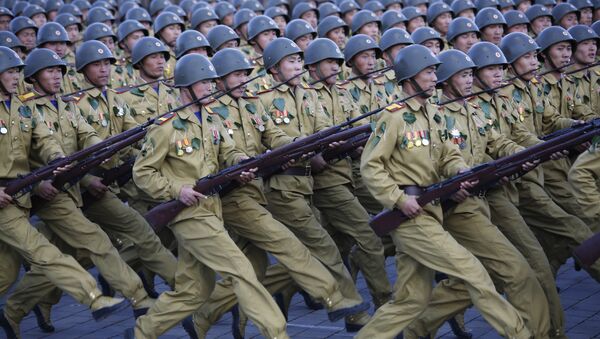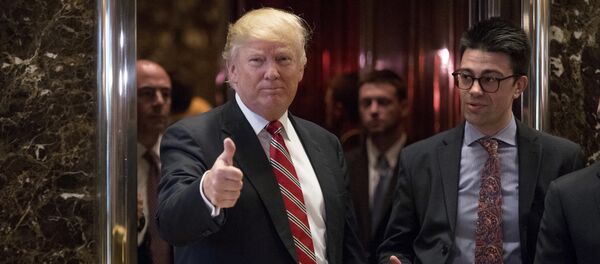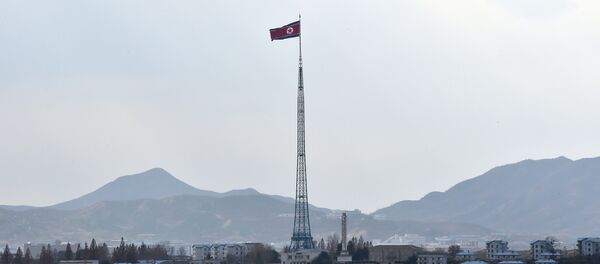During a meeting of the Subcommittee on Readiness and Management Support of the US Senate Committee on Armed Services, assistant Marine Corps commandant Gen. Glenn Walters said, "I can tell you today we cannot do two things simultaneously. One of the stressing ones for us is Korea, we could not do that at all if we still had commitments elsewhere in the world — Europe, Africa or the Middle East…And I think our enemies know that."
Walters raised similar concerns while testifying at a Tuesday hearing of the House of Representatives’ Committee on Armed Services. When Rep. Trent Franks (R-AR) asked if it was possible for the US to carry out a "Korea scenario while maintaining commitments around the world," or mount a proper response to a Korean conflict, while keeping the current level of American troops elsewhere intact.
Walters responded, "We would be able to execute a Korea scenario, but we would have to draw from other commitments in the world to make it on the timeline required."
Some have interpreted these recent hearings as a sign of Washington’s determination to be prepared for conflict on the Korean peninsula.
South Korean news outlet Joongang Daily quoted Korea Institute for National Unification research fellow Cha Doo-hyun saying, "The US government would need to check if its forces are ready to counter possible conflicts that may ensue from a preemptive strike."
Yang Uk, senior Korea Defense & Security Forum researcher, reasoned that, "A preemptive strike capability is credible only when the government has enough forces ready to engage successfully in a conflict that may ensue from a strike,” adding, “The fact that the US Congress is holding these discussions is a signal to the North to not to conduct military provocations."
Some arms control experts suggest that North Korea could develop a nuclear weapon capable of reaching the western coast of the US in just a few years, leading west coast lawmakers and politicians searching for ways to protect their region.
US Rep. Brad Sherman (D-CA) said during a House Foreign Affairs Committee hearing earlier this week, "We ought to have civil defense in this country," according to McClatchy.
Former Treasury Department worker and Korea expert Anthony Ruggiero noted that Pyongyang’s opaque activities could make mounting a proper response a strenuous task. “The difficulty here is the lack of visibility into North Korea’s nuclear program. It’s a black hole."
Adding to this confusion is the unpredictability of US foreign policy under the administration of President Donald Trump, who wrote on Twitter following North Korean leader Kim Jong Un’s New Year’s Day address, "North Korea just stated that it is in the final stages of developing a nuclear weapon capable of reaching parts of the U.S. It won't happen!"
Sherman offered, "We have a foreign policy establishment that will not admit to the American people that it (deterrence) may fail to prevent us from being hit..We could prepare to minimize casualties. We won’t, because that means we’d have to admit that there’s the possibility we will face casualties."
There are also hints of instability in Pyongyang’s leadership, as North Korea recently dismissed State Security Minister Kim Won Hong, in a move that Seoul believes may signal a "crack in the elite" and possibly another purge of high-ranking North Korean officials.




